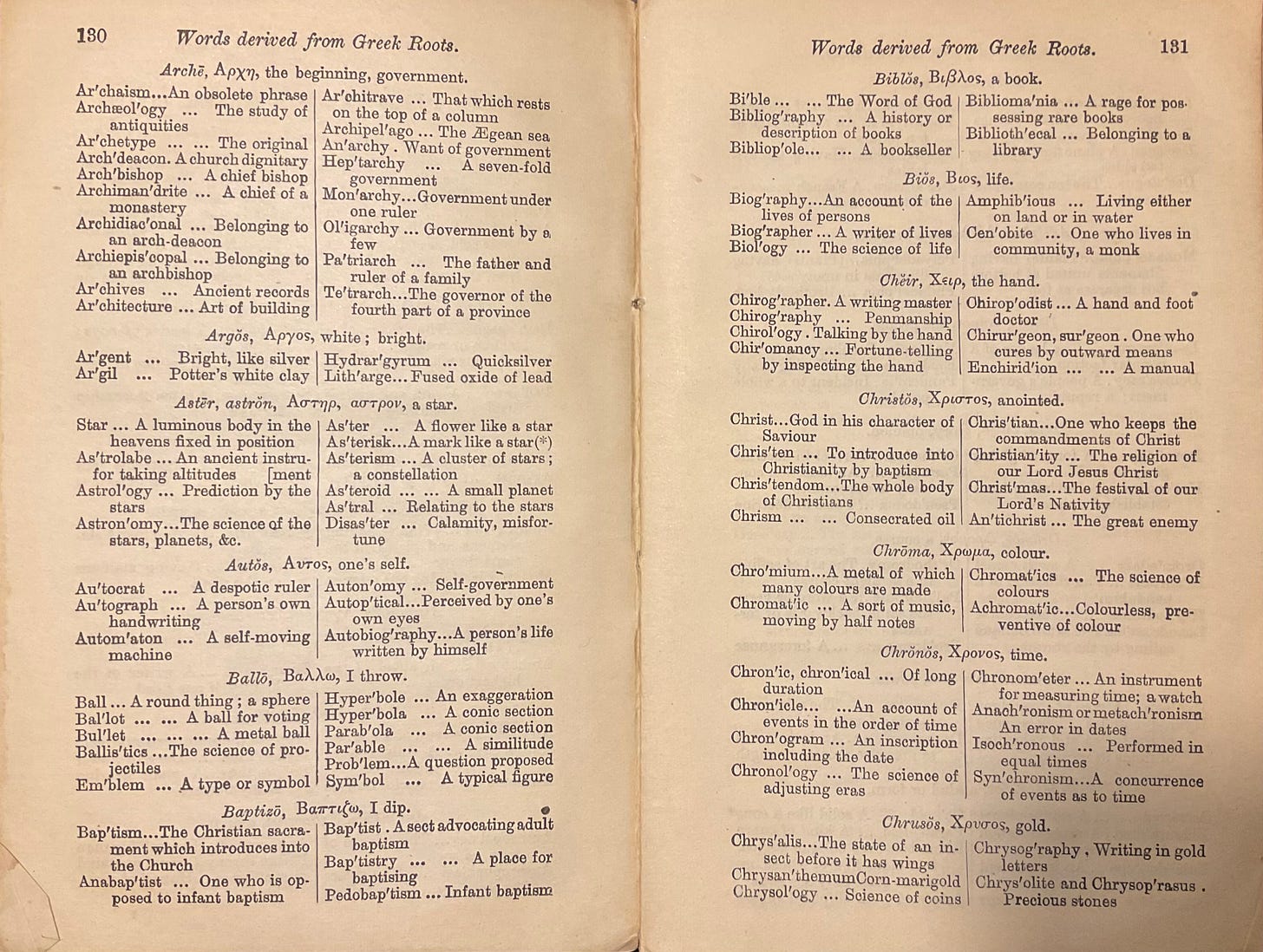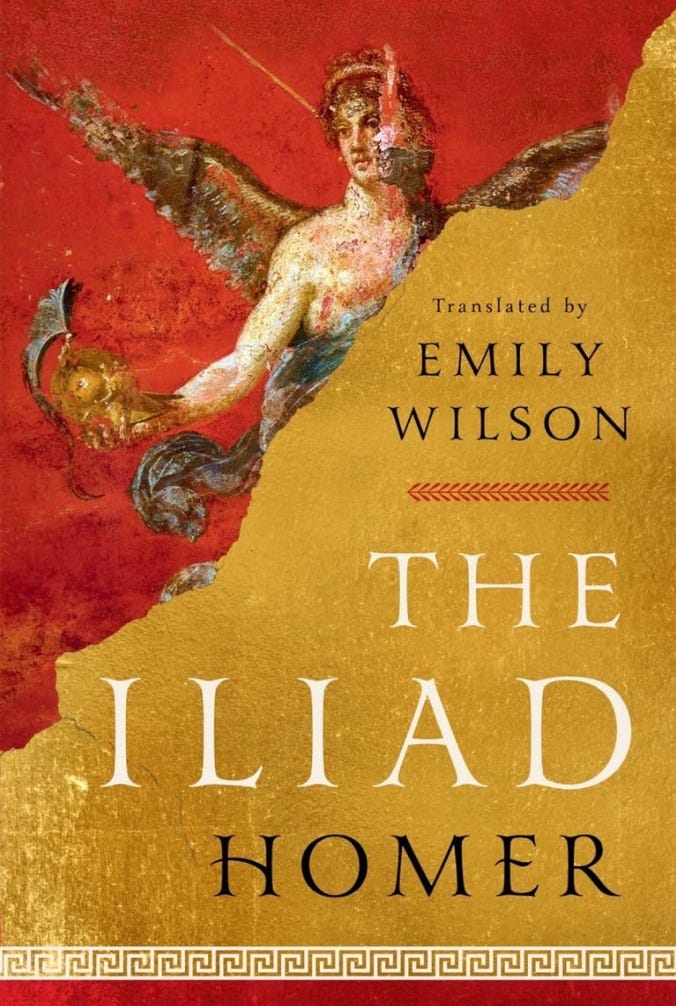My children (7 and 9) have been learning Ancient Greek for the past two or three years. I’m planning to introduce Latin next year. Here’s why we’re learning classical languages, in no particular order:
The children enjoy it. We first started on Greek because they asked to. Sometimes they rue the day, but this morning my daughter exclaimed “Oh my gosh! I just read some Greek as if it was English!”. They like the challenge.
It’s good to know stuff. Some stuff is more valuable than other stuff, but essentially, the more you know, the better.
It’s good for them to see that they can do something really hard, and that eventually, with work, they will make progress. About 18 months ago we reached a point in our Greek book that was just too difficult. We drowned in unfamiliar vocabulary and bewildering grammar. But we didn’t give up. Instead, we proceeded very, very slowly. We’re now on course to finish the book by Christmas.
It’s great for vocabulary. So many English words have Latin and Greek roots. It’s fun and enlightening to play detective and work out what a word means by breaking it down into classical words you already know.
Great literature contains so many classical references. Only last night I was reading a book published in 1947. The title of the chapter was Respice finem. I didn’t know what it meant, and I didn’t want to get the iPad out to look it up at 10pm. This is one example among thousands. Yes, we can Google it, but we can Google everything. I’d rather know it.
Just because something is on Wikipedia, or the AI can do it, doesn’t mean it’s not valuable for us to know it ourselves. The AI has read all of Shakespeare. Does that mean the rest of us shouldn’t bother? Yes, the AI can translate the Odyssey. Doesn’t make it Emily Wilson.
Latin was once the international language of serious people. Galileo wrote in Latin so he could be read all over Europe. So did Newton. I know we’re not going to go back to that, but I don’t want the skill to die out completely. Who knows when the next dark age will come to pass? I want there to be torchbearers.
It helps with modern languages and grammar. Example: learning a verb table in Greek means that learning a verb table in French is much more familiar. There are even similarities in verb endings. And I mentioned that lots of English words have classical roots—of course, so do plenty of words in other languages.
The Greek and Roman civilisations represent two of the high points of human achievement. Millions go to visit Rome and Athens every year to see the remains of those civilisations. Even more watch Russell Crowe in Gladiator! Learning the languages—or just a bit of them—brings us closer to these people, and continues the conversation.
The Greeks used a whole different alphabet! They used letters that we don’t, and they got by without letters that we consider essential. Their nouns could be one of three genders (pretty weird if you only know English). Word order in Ancient Greek matters much less than it does in English. To me this is like travel broadening the mind. Learning how ancient people used language is a powerful lesson that there is more than one way of doing things.
Feel free to add your own reasons, or questions, in the Comments. You might also like to take a look at a past guest post from Anya Leonard of
:Thanks for reading. If you’re not subscribed to How We Homeschool, sign up for free and never miss a post.







My children are older (12 and 15) and we studied Latin with the two Minimus books last year. My older son is now in school for GCSEs and I’m delighted he chose Latin as one of his electives. My younger son and I are also following the GCSE curriculum as homeschoolers (the new GCSE books by Cullen and Taylor are very good). It has been so rewarding! As you say, there are Latin references all around us…
I took Latin in high school and first year university. Fascinating and also historical. It does help with English. Iliad. And The Odyssey.